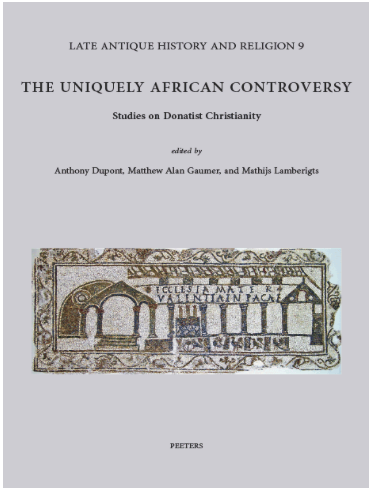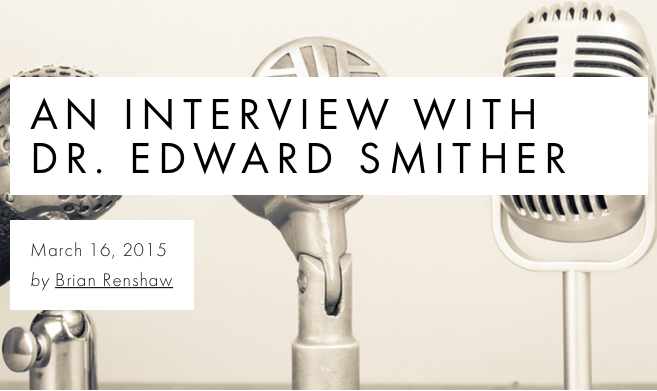posts
|
The Uniquely African Controversy: Studies on Donatist Christianity was recently released by the Belgian publisher Peeters. The individual chapters were originally given as papers at a conference on Donatist Christianity at the University of Leuven in 2012. Below is a brief summary from the publisher:
Roman North Africa was one of the major centres where ancient Christianity thrived, and there Donatism was the most prevalent form of Christianity. This neglected story from Late Antiquity is treated in a multi-disciplinary way in the current volume. The Uniquely African Controversy: Studies on Donatist Christianity seeks to uncover what the identity and historical context of Donatism was, and why it disappeared. What was Donatism's legacy? Who were its leaders and adherents? Why did Augustine of Hippo become so embroiled in controversy with the Donatist Church? The contributions in this volume come from scholars from North America, Europe, and Australia, and they cover topics including archaeology, Roman law, theology, martyrology, and ecclesiastical history. I had the privilege to read a paper at the Leuven conference, which became chapter 14 of the book ("Augustine, missionary to heretics? An Appraisal of Augustine's Missional Engagement with the Donatists") with the following abstract: Augustine is well remembered as a theologian, polemicist, and Church leader, especially in his dealings with the Donatists. In this chapter, my aim is to take an admittedly different approach and examine Augustine’s Donatist interactions afresh in the light of Christian mission. That is, as Augustine regarded the schismatic group as a heretical mission field – distinguished not by cultural or geographical barriers but through ideology – he deemed that they were in need of conversion to the true Church. In order to accomplish this, I will first propose a working definition of Christian mission that stems from the Scriptures, which reflects the activity of the Church. Second, I will briefly discuss Augustine’s heretical branding of the Donatists, which made them a focus of mission. Finally, I will build the case for Augustine’s missional engagement with the Donatists – even that which included the involvement of the state – by exploring his interactions with them over three periods between 391 and 419. From this narrative, an argument will be made for Augustine’s understanding of and approach to Christian mission. I was grateful to see that my book Mission in the Early Church was reviewed in the April 2015 edition of the International Bulletin of Missionary Research. Whenever I see a book that I have written reviewed in an academic journal, it is both encouraging that someone would consider it worthy to review and scary that someone is going to criticize it. But that is the nature of our craft and I, too, write critical book reviews in order to learn and clarify my thinking. Ordinarily, I wouldn't write a a rejoinder to a review but I do feel that Andrew Christoner's critique merits a brief response.
He writes: "First, the study is heavily dependent on earlier overviews of the early Christian period. Very little original discussion of or interaction with primary texts is apparent." Christoner is correct in that current historical scholarship from the Patristic period was consulted. This was done in part to show a consensus of thought from existing scholarship but also to synthesize this scholarship in light of the book's aim to explore mission in early Christianity--something that few Patristic scholars show much interest in doing. That said, the themes and trends that I highlighted in the book are in fact the fruit of reading the fathers over the last twenty years; not based on what others have previously claimed about early Christian mission. I would invite the reader to explore the early Christian primary sources that I have quoted or cited throughout the book (in accessible English editions for the benefit of the beginning student) to get a glimpse into that journey. Christoner continues: "Second, Smither’s discussion of certain features of early Christian writings seems to lack critical perspective. For example, when discussing martyrdom literature in chapter 3, he argues that the pains and deaths suffered by the martyrs 'surely encouraged sympathy from pagan audiences' (63). A crucial difficulty with this claim is the dearth of accounts of Christian martyrdoms written by pagans. Early Christian accounts of martyrdoms speak at times of a pagan audience’s horror and grief at the sufferings of the Christians, but we should hesitate to take these Christian accounts completely at face value, given the interest of the early Christians in presenting their opponents as sympathetic to the Christian cause." This is a very good point and my case would be much better made if more pagan writers concurred with the early Christian writers. Recent scholarship has looked at early Christian suffering and martyrdom accounts with extreme skepticism and I think, at times, modern scholars could be guilty of reading too much poor motivation into the hearts of early Christian writers. My doctoral supervisor--an Irish scholar chairing a historical theology department at a British university--reminded me once that these writings should not be regarded as the handiwork of professional liars. While we must evaluate early Christian accounts of suffering and martyrdom with caution, in Mission in the Early Church I chose to base my claim above (that suffering aroused sympathy from pagan audiences) on the fact that this was asserted in many accounts in various geographic locations in the ancient world. All said, I am grateful for Andrew Christoner's review and feedback that are surely sharpening my thinking and I, of course, wholeheartedly share the sentiment in his closing remark: "It is to be hoped that missional efforts increasingly will be inspired by the riches of wisdom found in the Christian past." Back in November at the Evangelical Theological Society annual meeting in San Diego, I sat down with Coleman Ford and Shawn Wilhite, senior fellows at Southern Seminary's Center for Ancient Christian Studies for this podcast interview. For me it was a great chance to reflect on the last fifteen years or so of studying the early church--motivations for it and lessons learned along the way. What better thing to talk about on in an outdoor cafe on a beautiful southern California day?
|
Archives
November 2023
|


 RSS Feed
RSS Feed
